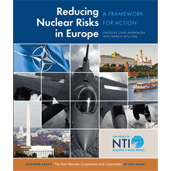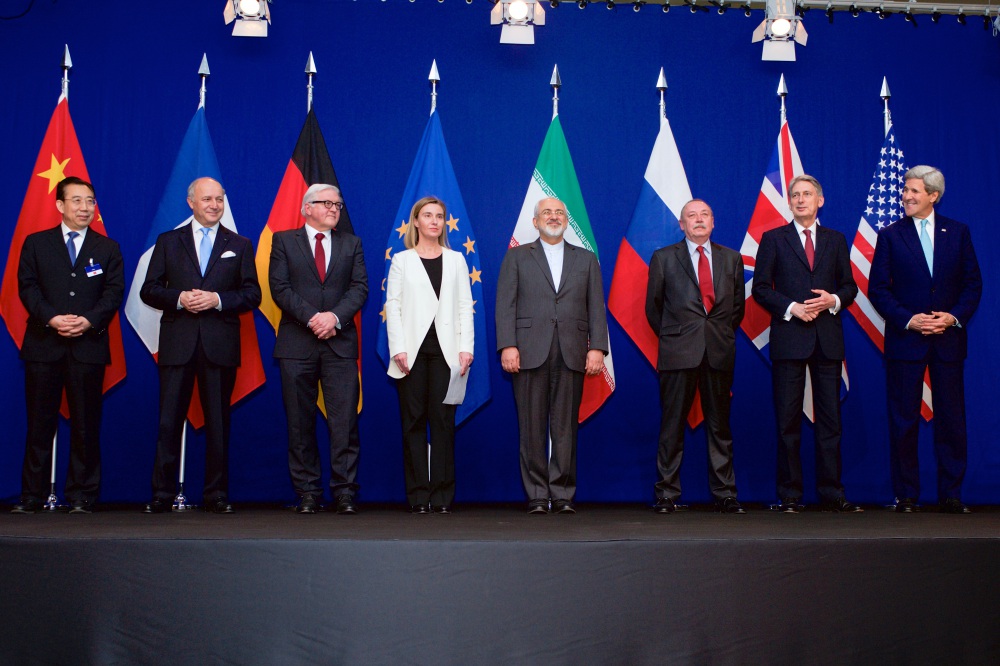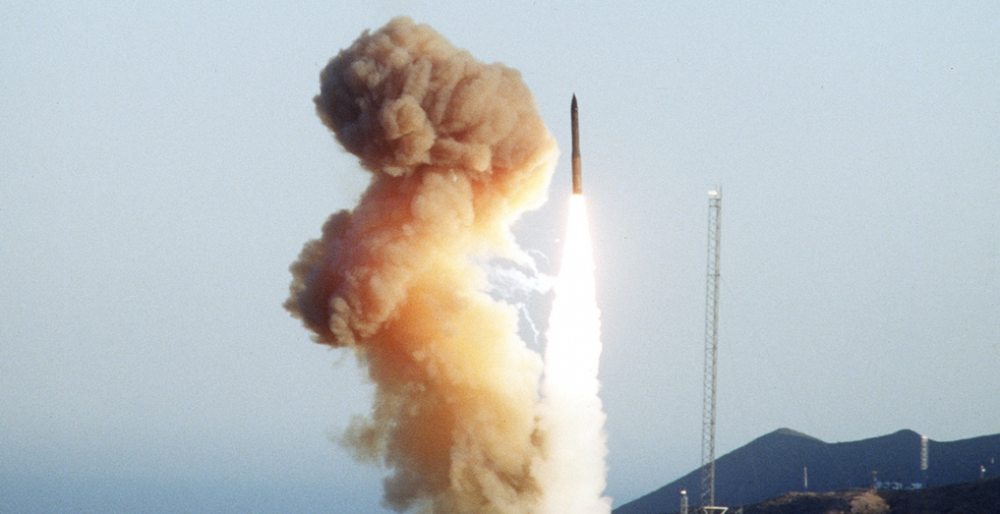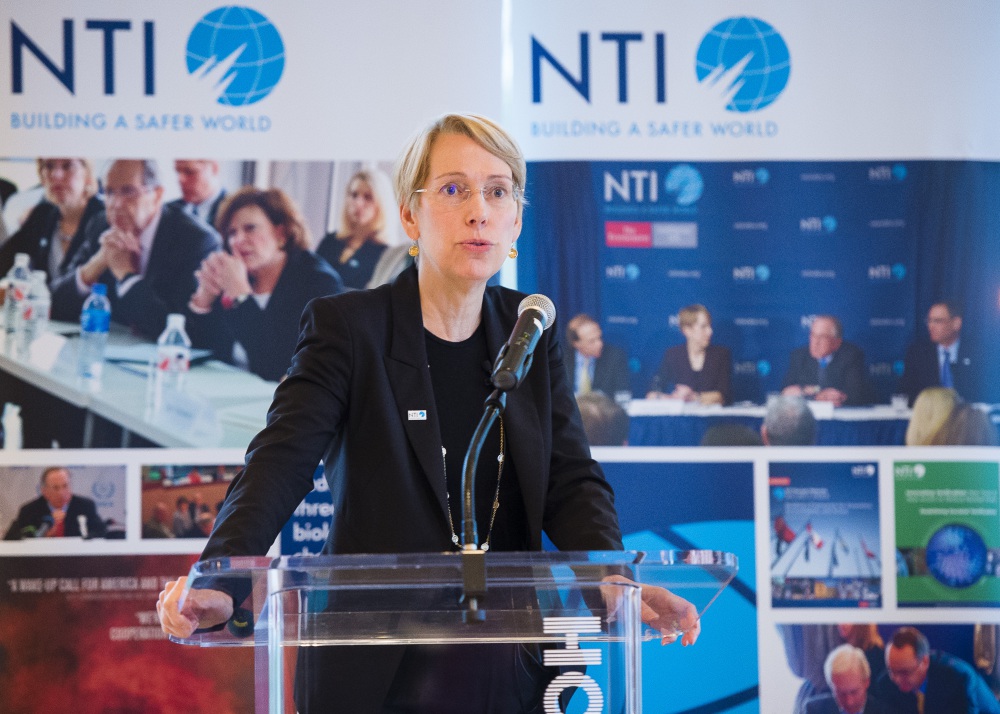
Steve Andreasen
National Security Consultant
WASHINGTON, D.C. – Former U.S. Senator Sam Nunn argues for changing the status quo regarding tactical nuclear weapons in Europe in a new essay that proposes 10 steps ("10 for 2012") for NATO to consider as it plans for the next NATO Summit in Chicago in May. Specifically, Nunn calls for a five-year target for the consolidation of all U.S. tactical nuclear weapons in Europe back to the United States, with the final timing and pace determined by broad political and security developments between NATO and Russia.
Nunn’s essay is in a new NTI report “Reducing Nuclear Risks in Europe: A Framework for Action” (www.nti.org/NATOreport) which identifies policy and force structure options open to NATO members for moving to a new nuclear posture, and aims to promote dialogue and new thinking on key issues and questions, both within NATO and with Russia.
"The rationale for maintaining thousands of tactical nuclear weapons in Europe for another decade is out of date and dangerous for NATO and for Russia,” said Nunn writing in his essay “The Race Between Cooperation and Catastrophe.” “Getting from where we are today – a dangerous and costly status quo – to where we want to be – the elimination of these weapons – will require a framework for dialogue between NATO and Russia and a clear goal.”
At the core of "10 for 2012" is a NATO commitment to deepening consultations with Russia on a full range of Euro-Atlantic security issues, including a new process and dialogue on steps designed to increase “warning and decision time” for political and military leaders, so that no nation fears a short warning conventional attack or feels the need to deter or defend against such an attack with tactical nuclear weapons.
Ten Additional Papers and Essays Address NATO Policy
NTI commissioned the report as a contribution to NATO's ongoing Deterrence and Defense Posture Review. The report includes ten papers and essays authored by leading international, military, academic and policy experts who have advised senior government officials in the United States, Russia and Europe. The authors make recommendations relating to key NATO nuclear policy issues, including declaratory policy, the security of tactical nuclear weapons, nuclear sharing arrangements, reassurance, conventional arms and missile defense, cooperation with Russia, and Asia's nuclear future.
“We need to jack up our resolve, use our best brains and creativity, and get moving on this problem now –so we can win the race between cooperation and catastrophe,” said former Secretary of State George Shultz, about the NTI report. The papers “provide a compelling blueprint – within NATO and with Russia –for enhancing the security of these weapons and laying the groundwork for their eventual elimination.”
The report is edited by NTI’s Steve Andreasen and Isabelle Williams and and includes an Executive Summary by NTI President Joan Rohlfing, Williams and Andreasen. The report is available at www.nti.org/natoreport or in hard copy by email request to [email protected].
The Nuclear Threat Initiative is a nonprofit, nonpartisan organization working to reduce the global threats from nuclear, biological and chemical weapons. NTI is co-chaired by Sam Nunn and Ted Turner and governed by a board of directors with members from nine countries. More information can be found at www.nti.org
Reducing Nuclear Risks in Europe: A Framework for Action
Edited by Steve Andreasen and Isabelle Williams
December 2011
Click here to access full report and the Table of Contents
Executive Summary: Reassembling a More Credible NATO Nuclear Policy and Posture
Joan Rohlfing, Isabelle Williams, and Steve Andreasen
Featured Essay: The Race Between Cooperation and Catastrophe
Sam Nunn
NATO Nuclear Policy: Reflections on Lisbon and Looking Ahead to the DDPR
Simon Lunn
Words That Matter? NATO Declaratory Policy and the DDPR
Malcolm Chalmers
The Security of NATO Nuclear Weapons: Issues and Implications
Robertus C.N. Remkes
Options for NATO Nuclear Sharing Arrangements
Karl-Heinz Kamp and Robertus C.N. Remkes
NATO Reassurance and Nuclear Reductions: Creating the Conditions
Hans Binnendijk and Catherine McArdle Kelleher
Interlinked: Assurance, Russia and Further Reductions of Non-Strategic Nuclear Weapons
Catherine McArdle Kelleher
Reconciling Limitations on Non-Strategic Nuclear Weapons Conventional Arms Control, and Missile Defense Cooperation
Robert H. Legvold
A Russian Perspective on the Challenge of U.S., NATO, and Russian Non-Strategic Nuclear Weapons
Alexei Arbatov
Worlds Apart: NATO and Asia's Nuclear Future
Jonathan D. Pollack
###
Sign up for our newsletter to get the latest on nuclear and biological threats.
A new statement with 76 signatories from the European Leadership Network, including NTI board member Rolf Ekeus, calls on President Trump to sustain the Iran Nuclear Deal.
The APLN released a statement encouraging the United States to adopt a nuclear No First Use policy and calling on its Pacific allies to support it.
Sam Nunn said that dealing with North Korea has been one of the most difficult challenges for the U.S. government.



